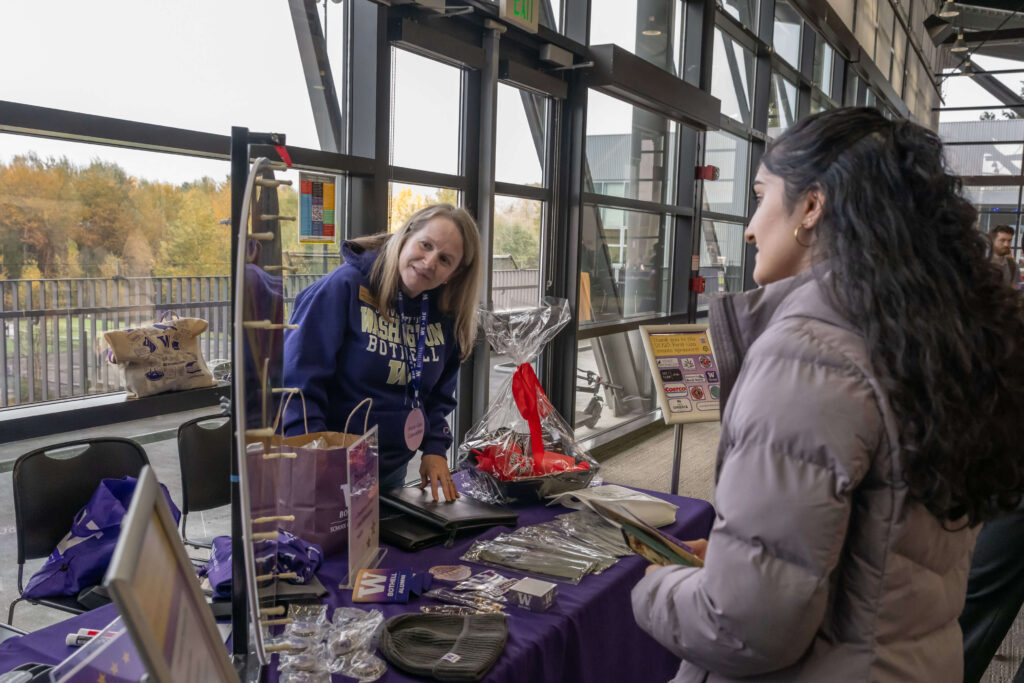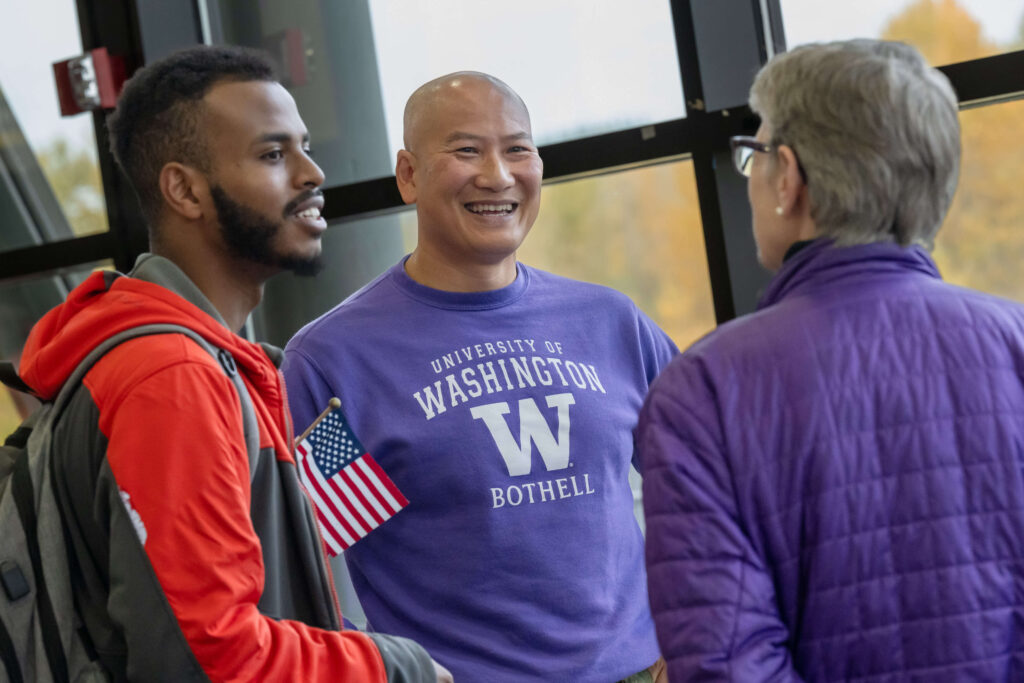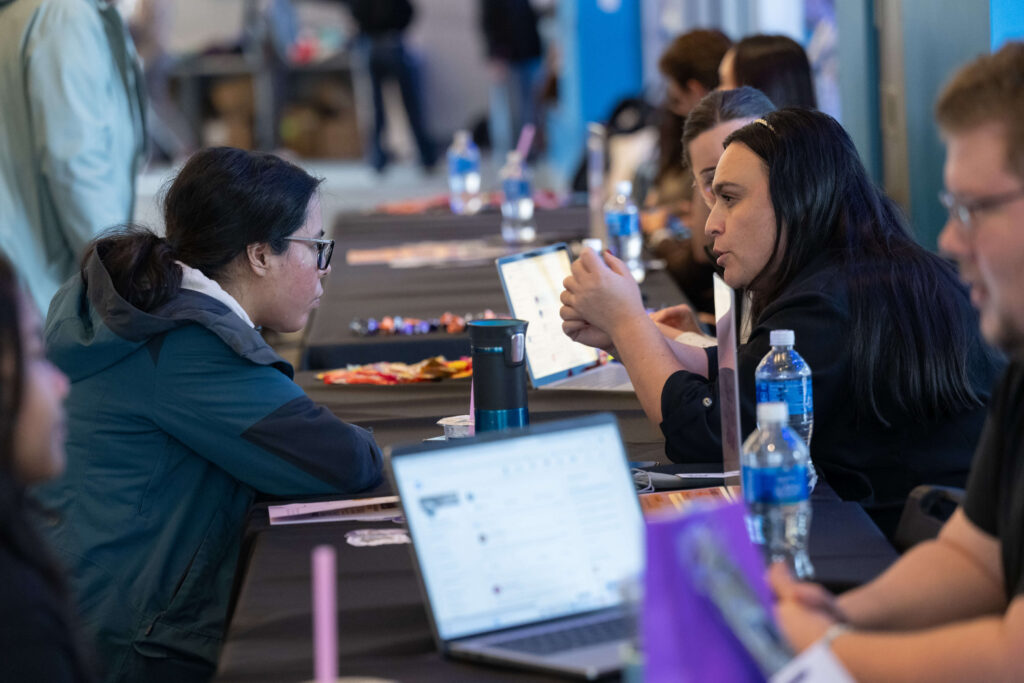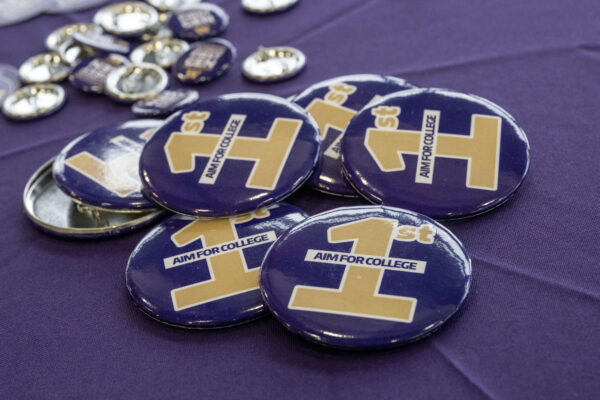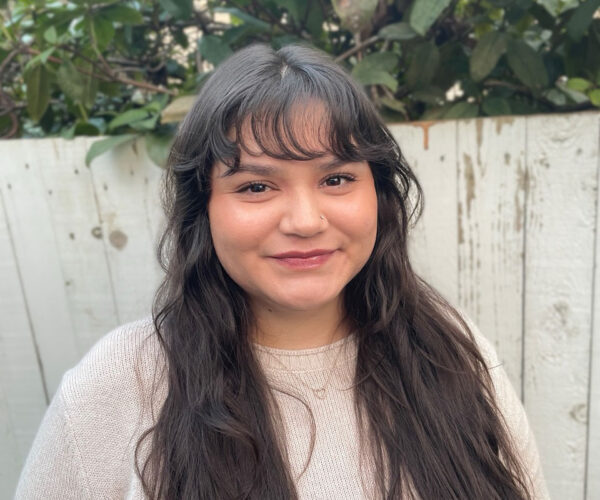For many first-generation college students, stepping onto campus is more than just the start of a new chapter — it’s the rewriting of a family story. Caught between the hopes of home and the unfamiliar rhythms of higher education, they navigate a world their parents could only imagine.
In honor of National First-Generation College Celebration Day on Nov. 8, we asked three students to share their experience of being the first in their immediate families to work toward a four-year college degree.
Rahima Shams, a pre-major sophomore, grew up in Kabul, Afghanistan, the second child of six siblings. She and her family moved to the U.S. in July 2021 because her parents wanted their children to study in a safer and more technologically advanced environment with better educational opportunities and more career options. One of her brothers is also now in college. “Our parents wanted us to have a chance to pursue our dreams without fear or limitation, especially when it comes to higher education,” she said.
Kim Liao, a senior majoring in Data Visualization, grew up in Hong Kong, the eldest of three siblings. His parents and sisters are still there. In 2021, Liao moved to the United States as an international student to continue his education. He said, “My family has always supported my decision to study in the U.S., even though they don’t speak English and didn’t fully understand how the American education system works.”
Liliya Smirnova’s family immigrated to the United States from Kazakhstan through the Diversity Immigrant Visa Program. She was only two years old, the only child at the time. Her two siblings were born in the U.S. “As I got older, I learned that my mom had always envisioned me attending the University of Washington, even before I fully understood what college meant,” she said. Smirnova is a senior in Health Studies.
When did higher education become part of your story or family conversations?
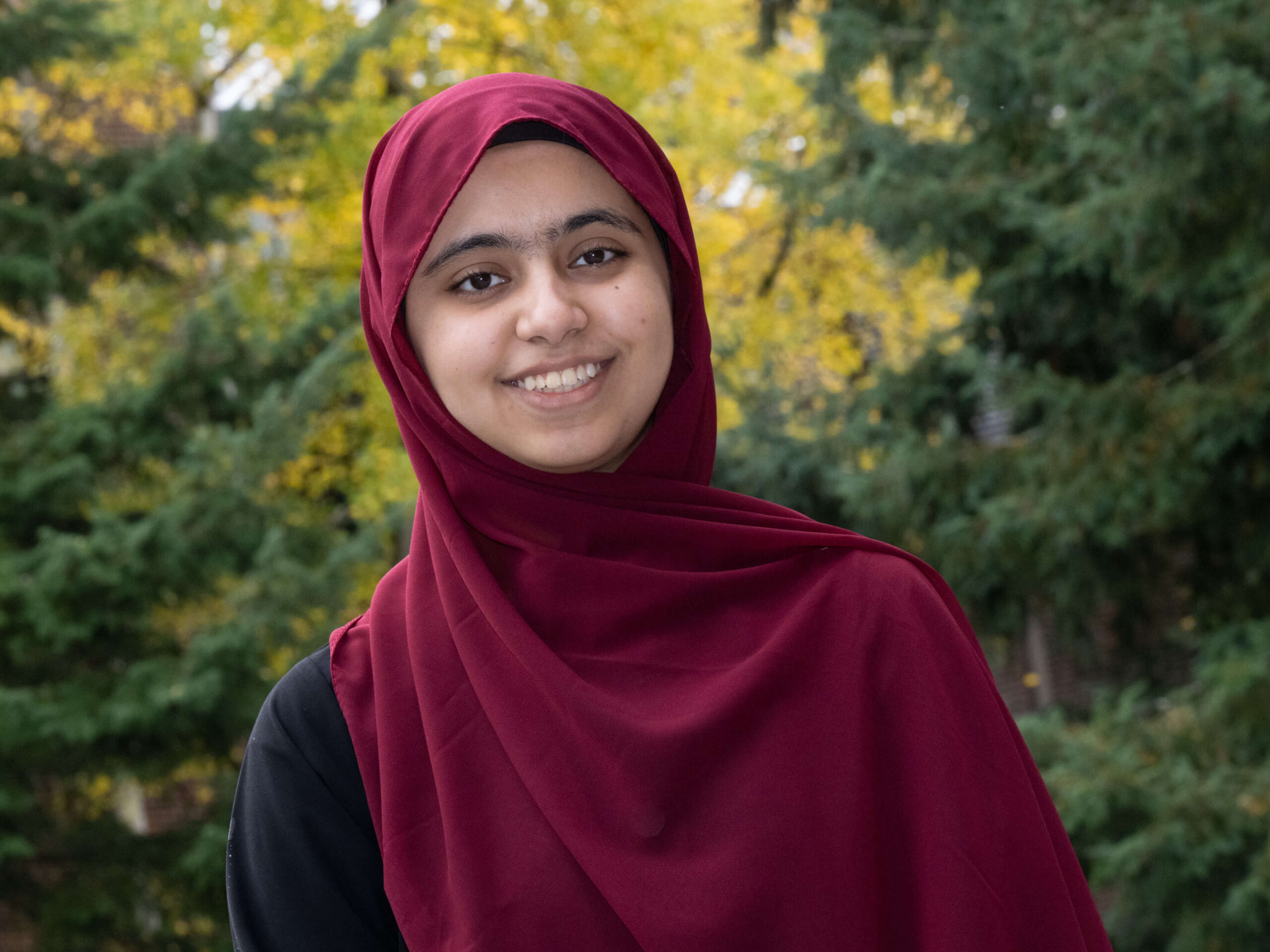
Shams: Ever since I can remember, my dad has always emphasized the importance of getting a higher education. He encouraged all of us to explore different fields, find what we’re passionate about and pursue it seriously. Higher education was always part of my family’s conversations because my dad truly values learning. He grew up in a time and place where education wasn’t easily accessible, and he often told us stories about traveling for hours on his bike just to attend school. Knowing what he went through made me realize how valuable education is. Even now, both of my parents constantly support and encourage me to study hard and follow my dream of becoming a surgeon.
Liao: I started thinking seriously about college during my freshman year of high school. I was focused on improving my English, and I set a goal early on to earn a degree in the U.S. I also dreamed of becoming a professional basketball player in America, so going abroad for school felt like the first step toward both education and opportunity.
How did your family view college?
Smirnova: Higher education was always strongly encouraged in my family. It was, in many ways, the main reason my parents found purpose in moving to the United States. In their minds, coming here represented a chance to give me and my siblings an education based on merit rather than privilege or connections. Back in my home country, I won’t deny that the education system is academically strong, but it’s also deeply corrupt. Instances of people buying diplomas or certifications aren’t hidden scandals — they’re often an open secret, a normalized part of the system. In contrast, when similar issues arise in the U.S., they make national headlines and spark outrage. That difference really highlights why my parents wanted to start over here. They believed that in America hard work could actually mean something, that education could be earned not bought. Growing up with that perspective instilled in me a deep sense of gratitude and responsibility.
Who or what inspired you to pursue higher education?
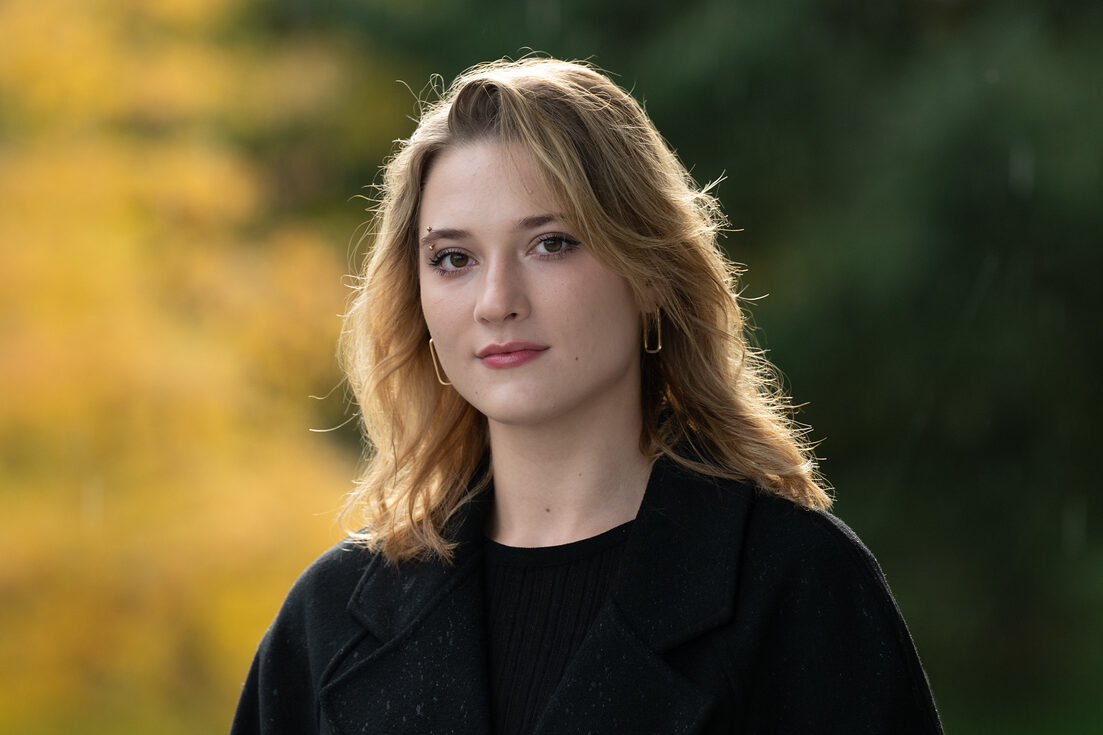
Smirnova: Without a doubt, my parents are the reason I chose to pursue higher education. Neither of them had the opportunity to continue their studies, and it’s something they still express regret about. I’ve always tried to encourage them to return to school, but I understand how difficult that can be. When you grow up in survival mode — and everyone around you is just trying to get by — it’s hard to find the motivation or energy to dream beyond the immediate. Despite that, my parents are two of the most intelligent and intellectually curious people I know. Their minds are sharp, their perspectives are deep, and their thirst for knowledge is something I deeply admire. I’ve always felt that their unrealized potential is something I carry forward — not as a burden but as an inheritance. Their dreams and my own have become intertwined, and pursuing higher education feels like honoring both.
Shams: My fascination with human anatomy and physiology, and my desire to help others, inspire me to pursue higher education and become a surgeon. Besides that, my dad played a huge role in shaping my mindset about education. His encouragement, along with seeing how much effort he put into providing us with better opportunities, really motivates me to study hard and make the most out of my education.
Liao: I grew up believing that higher education could change your life. The more you learn, the more opportunities you have — including better-paying jobs and a more stable future. That belief stayed with me, and it became my motivation to keep pushing toward college, even when it was hard.
Describe how you felt the first day of classes at UW Bothell.
Shams: I remember feeling very nervous on my first day at UW Bothell. I didn’t have any friends from high school coming with me, and I didn’t know anyone at the University. I was afraid of missing deadlines or forgetting something important because everything about the U.S. education system was new to me. My dad would remind me to talk to advisers and professors to learn how things work since he couldn’t personally guide me through the system. The first few days were stressful and overwhelming, but things got better once I met my professors, peer coach and some new friends who made me feel more supported and confident.
What is it like being a first-generation college student?
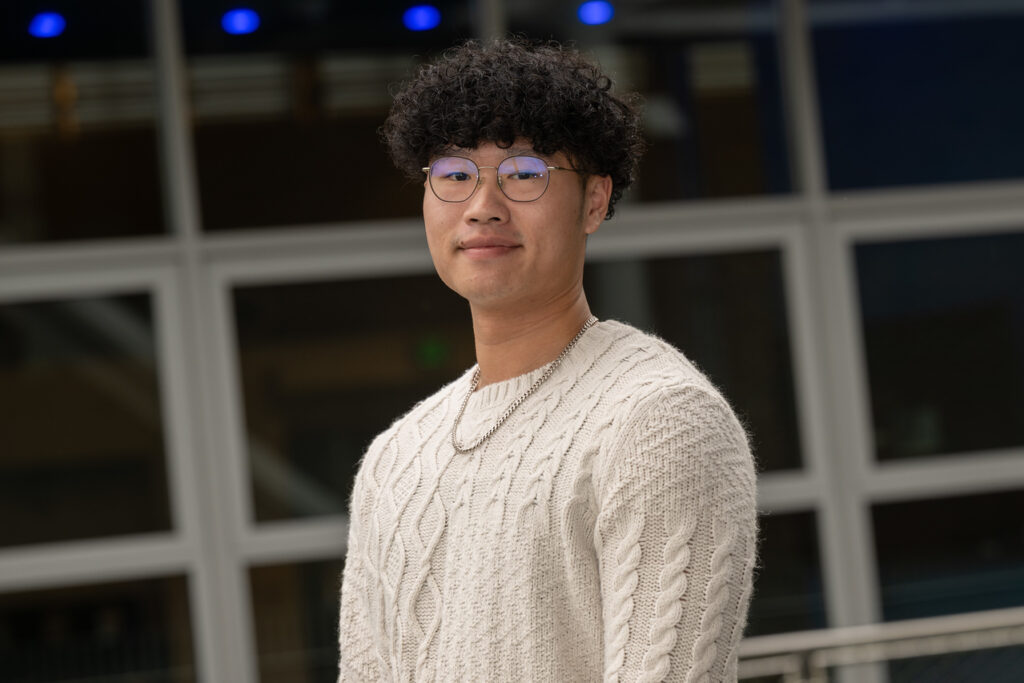
Liao: It’s not easy. I feel a lot of pressure sometimes, especially as the oldest sibling. I want to set a good example for my two younger sisters — to show them that their brother can make it on his own in another country, earn good grades and build a future. Being first-gen means I’m not just doing this for myself. I’m trying to open a door for them, too.
Shams: At first, it was stressful and nerve-racking because I didn’t have anyone in my family who could guide me through the college process. Over time, though, I’ve learned to navigate things on my own and reach out for help when I need it. Now, I feel much more confident knowing that I can rely on myself and the resources available on campus. Being a first-gen student has taught me independence, resilience and how to seek help from the right people.
Where have you found the support you need to succeed?
Liao: I found a lot of support in places I didn’t expect. The gym has been huge for me — lifting helps me deal with stress, build confidence and stay mentally strong. I also found support by getting involved on campus. Over the summer, I joined the UW Bothell Orientation Leader team, and it changed everything. It helped me grow as a leader, improved my public speaking and made me more comfortable talking to people. It showed me that I don’t have to go through college alone.
Shams: I’ve found support from many people since I came to the U.S. In high school, my teachers and counselor always encouraged me and helped me with both academics and personal goals. In college, my peer coach, professors and friends have been a big source of support. I’ve also learned that asking for help is a strength, not a weakness. There are always people willing to guide you if you reach out.
What are you most proud of as a first-gen college student?
Liao: One of my proudest moments was telling my parents I got accepted into a top 100 university in the U.S. I worked really hard for that, and even from thousands of miles away, I could feel how happy they were. That moment made all the effort and sacrifice feel worth it.
Shams: I’m most proud of how resourceful and independent I’ve become. I’m proud of myself for learning how to use the resources available to me, asking for help when I need it and staying strong even when things get challenging. Being a first-gen student has taught me how to adapt to new environments and never give up on my goals.
Who, or what, has kept you motivated in your academic journey?
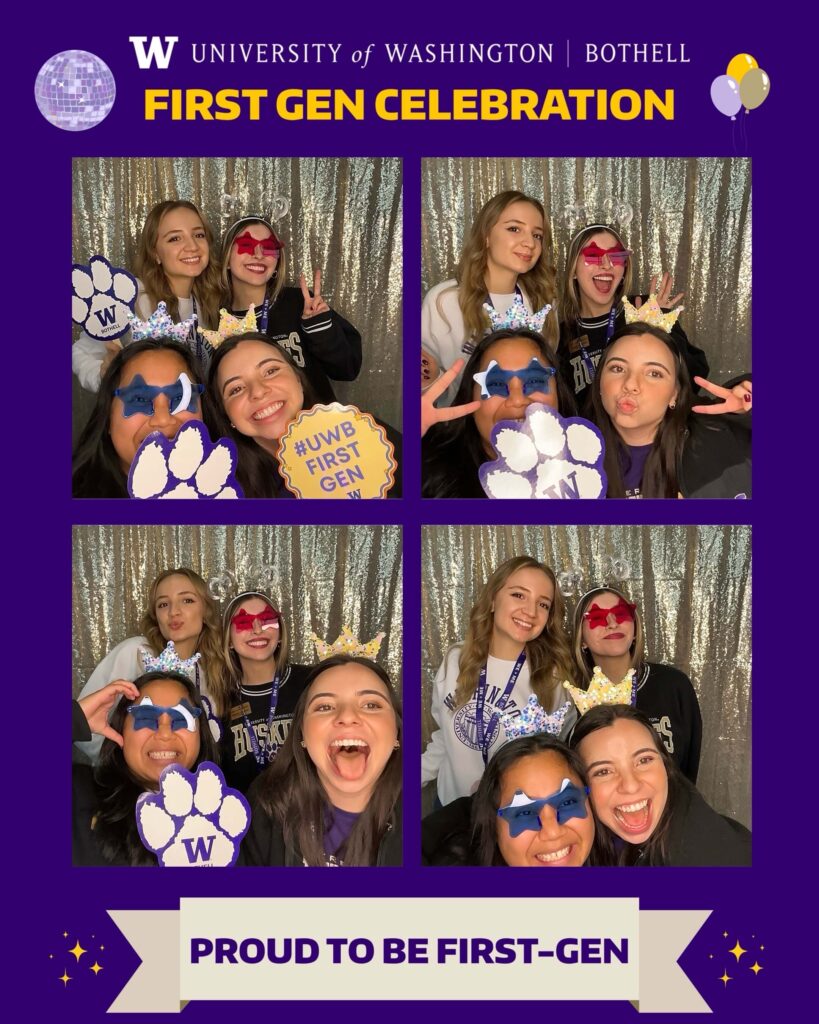
Liao: My motivation comes from three places: my parents, myself and the future I’m building. My parents worked so hard to give me this chance, and I want to make it count. I’m also driven by my own goals — to prove that I can succeed in a new country and in a competitive major. And finally, I stay motivated because I can see the career I want ahead of me. Every step I take now brings me closer to that future.
Smirnova: My parents keep my inner world full of meaning. Every reflection I make about my education, I’ve already talked through with them at some point. Their words, encouragement and sacrifices remind me of why I’m doing all this in the first place. My professors have inspired me by showing what it looks like to love what you study. The way they speak about their subjects — with so much depth and enthusiasm — reminds me that learning can be a lifelong joy, not just a requirement. And my fellow students and friends motivate me in the most down-to-earth way. Seeing others work hard, chase opportunities and overcome their own struggles makes me want to do the same. It’s comforting and exciting to know we’re all growing together, figuring things out side by side.
UW Bothell is proud to be recognized as a First-Gen Forward institution. On Nov. 5 and 6, its First-Generation Celebration featured a variety of activities for the campus community, and a resource fair and career closet for first-generation students, staff and faculty.
